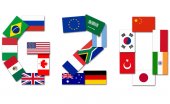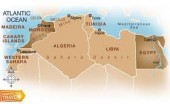Molly Minturn - My family is heartbroken to share that my father died in surgery on Monday, Feb. 10. It…
Wednesday Night #1416
Written by Diana Thebaud Nicholson // April 22, 2009 // Americas, Canada, Economy, Government & Governance, Herb Bercovitz, Natural resources, Politics, Reports, Wednesday Nights // Comments Off on Wednesday Night #1416
An unexpected visit from Maureen Farrow stimulated a lively exchange about the role of banks and financial institutions in preserving capital, while managing an investment portfolio, as well as a knowledgeable commentary on the current gyrations of the market and the medium-term outlook.
However, the major part of the evening’s discussion was generated by the presence of new guest Leanne Bourassa, a lawyer with National Bank Financial, who is the manager of Brigitte Garceau’s campaign for vice president (francophone) of the Liberal Party of Canada. The vote will be held during the May LPC convention in Vancouver at which Michael Ignatieff will be formally endorsed as Leader.
Where have all the statesmen gone? Considered by many to have been a mixed blessing, and intensely disliked in Québec, his home province, Pierre Trudeau was the last of our political leaders who stood up to and debated with his detractors rather than yielding to them in order to gain votes.
Liberalism seeks to raise up poverty, preserve private interests justly by reconciling them with public right, rescue enterprise from the trammels of privilege and preference, exalts the individual not the rule, and attacks monopoly not capital.
According to current political polls, Stephen Harper is losing support nationally, while Liberal Leader Michael Ignatieff, a brilliant scholar, educator, worldly, intelligent, is gaining favour and will very likely be elected to succeed Mr. Harper. Unfortunately, however, unlike Pierre Trudeau, he is said to lack charisma and clearly defined goals and so far has proven to be a somewhat wooden public speaker.
Mr. Ignatieff appears to possess the prerequisites of a Prime Minister, but to achieve the goal of a great PM, he must replace some of his political goals by identification with those of the electorate. There seem to be two distinct versions of Michael Ignatieff, a charming and engaging conversationalist in small groups of people whom he respects as his intellectual equals, and the public persona that shows little ability or interest in identifying with the needs and aspirations of his fellow citizens. It is the latter public image – with more than a tinge of arrogance – that gives support to those who suggest that his policies are based on politics rather than on political philosophy and a grand vision for the country.
[Fascinating insight into this highly complex individual is offered in Michael Valpy’s long piece in the Globe & Mail “Being Michael Ignatieff”, but there is still much mystery about who/what is the real Michael Ignatieff.]
Rapid train service between Québec City and Windsor cannot be realistically be seen as a national dream for 2017, would be excessively expensive and ultimately doomed to disappointment as, unlike the rapid trains in Europe, it would serve a much sparser and smaller population. The national integration of our energy grid and accompanying protection of our water basin would be far more advantageous to our national well being in the long term and attuned to the energy/environment aspirations of many Canadians.
Currently, limits on campaign donations to political parties have reduced the ability to raise campaign funds from large corporate donations and most companies that contribute to political campaigns now do so equally to all parties, but once elected, funding local projects in order to reward some ridings or motivate others appears to remain an aspect of political life in Canada.
In his latest book, True Patriot Love , Michael Ignatieff has described Canada as a country of consensus, compromise and collective rights (invoking Trudeau), citing as examples, language rights and Medicare. This is a blatant error; neither language nor Medicare is a collective right. Theses are services the government has decided to deliver to the people. Furthermore, the statement belies the true nature and value of Canada as having established individual rights as supreme, a basic tenet of Pierre Trudeau’s philosophy.
Considered (hopefully) by some as the Canadian Barack Obama, it is doubtful that Mr. Ignatieff could live up to the comparison, unless he can overcome his desire for power for power’s sake, rather than power to lead and effect change.
While both are educated and articulate, President Obama‘s greatest contribution to the American people has been to make Americans believe in themselves (something sadly lacking among Canadian leaders) ; to give hope to the entire population, especially during this stressful period ; to confirm that individuals belonging to any minority group can be educated and succeed ; and that elected representatives are clearly not distant and monarch-like but are members of the larger society. Even during the current financial crisis, Obama does not hide, but takes a leadership role, acknowledges those of his initiatives that didn’t work and is forgiven. Whereas Bush was feared, Obama is respected. What remains to be seen is whether Congress can be motivated by the logic of Barack Obama as it was by the fear of Lyndon Johnson.
National elections in India are in the news . With a population of 1.7 billion people representing one sixth of the world population and over two thousand ethnic groups, voter participation was most impressive. People walk for miles and stand in line for hours at the polling stations in order to cast their vote. The outcome is unforeseeable and coalitions will undoubtedly have to be formed. There can be no doubt that democracy is alive and thriving in India.
T H E I N V I T A T I O N
REMINDER: May 11 is the Gala Concert of the McGill Chamber Orchestra, featuring Sondra Radvanovsky, arguably one of today’s finest Verdi sopranos. Hans and Janet Black are co-chairs of the event, which is bound to be exceptional.

Economic green shoots are appearing in the press, at least — (We find this item exceptionally appropriate for Earth Day 2009
“ .. some say that they see early signs that the chill of recession is giving way to spring. For many commentators, a hunt for the green shoots of recovery is on. Search among a selection of British and American newspapers, for example, and mentions of “green shoots” in articles about the economy have increased enormously in the past couple of months.” We Do love the Economist!
So, are there green shoots in the world economy? And, if so, will they survive the vagaries of a world climate that makes Montreal spring look utterly stable? Not to mention the disputatious economists who each criticize almost any idea that they did not originate. Will Larry Summers and poor Tim Geithner get plowed under by the likes of Paul Krugman, Joseph Stiglitz and – God help us, Naomi Klein? Note that while we are not fans of Ms. Klein, her point is well taken about “a central and often overlooked cause of the global financial crisis: Brain Bubbles. This is the process wherein the intelligence of an inarguably intelligent person is inflated and valued beyond all reason, creating a dangerous accumulation of unhedged risk. Larry Summers is the biggest Brain Bubble we’ve got”.
Bank of Canada doesn’t seem to enthused about green shoots, judging by this morning’s announcement that it cut its lending rate to the lowest possible, and promised to leave it there for as long as a year in order to fight a recession that is deeper and will last longer than it previously thought. And Bank of America sounds pretty gloomy too. [ not to mention, as Felix points out, the IMF who weren’t talking green shoots in their data today, but rather predicting a further half trillion losses for the US banking sector and worldwide write-downs of over $4 trillion with the proviso of ‘these things are difficult to calculate exactly’. ]
John Evdokias forwards some greenshoots from the Globe & Mail : Tesco, others buck the trend and start hiring — Most are retailers, but Microsoft is among companies placing want ads
Cleo sends along an item “A ‘Copper Standard’ for the world’s currency system?” from the Telly that confirms predictions heard often around Wednesday Night’s table, but this time there’s a bit of a twist “”China has woken up. The West is a black hole with all this money being printed. The Chinese are buying raw materials because it is a much better way to use their $1.9 trillion of reserves. They get ten times the impact, and can cover their infrastructure for 50 years.” “The next industrial revolution is going to be led by hybrid cars, and that needs copper. You can see the subtle way that China is moving into 30 or 40 countries with resources,” he [Nobu Su, head of Taiwan’s TMT] said. The SRB has also been accumulating aluminium, zinc, nickel, and rarer metals such as titanium, indium (thin-film technology), rhodium (catalytic converters) and praseodymium (glass).
Not many green shoots for the EU’s plan to regulate hedge funds, according to the FT. That ugly word ‘loopholes’ is raised – and now we now where it came from – a vertical slit in a castle wall permitting those inside to peer out and/or shoot while remaining protected (thanks to Tom Haslam-Jones).
Who knew (put your hands up) that Agriculture ministers from the G8 have been meeting and on Monday called for increased agriculture production as a way to combat world hunger. In view of rising concerns about world hunger, this item should not be taken lightly. We are glad to see that U.S. Secretary of Agriculture, Tom Vilsack, gives every indication of understanding the link between food security and global stability, reflecting a theme of Jeffrey Sachs’ lecture last week at McGill.
But, the G8 Agriculture ministers received little attention, as the Summit of the Americas and the topic of Cuba dominated the weekend news. It looks like President Obama managed to keep almost everybody happy, even Chavez was saying nice things about him. And it seems that NAFTA is not going to be re-opened.
In the race for conversation stoppers we would have nominated “Canada can make valuable contribution to accounting debate”, but the chairman of Canada’s Accounting Standards Board believes that this could be a key contribution to global governance – we will wait for Kimon to comment.
Excitement can be found in the Somali piracy dossier that keeps growing and will, it seems, heat up over the next weeks as luxury yachts are added to the flotillas of ships cruising through the dangerous waters of the Gulf of Aden. The BBC maintains an excellent and timely review of the situation. There’s much to be debated regarding what to do and how, to eliminate the pirates.
On the other side of the world, there is growing public concern about the power of the Mexican drug cartels which have replaced the Columbians. President Obama has promised enforcement help. We were struck by today’s item that Rafael Cedeno, a leader of “The Family” cartel, told police after he was arrested at the weekend he had trained several thousand cartel members with courses in ethics and personal improvement. One presumes this is to avoid tipping off the neighbours to their ethically less attractive activities.
Not to be outdone by US Airways’ Chesley Sullenberger, Canada now has its own heroes in the bizarre hijack attempt of the CanJet in Montego Bay. From all accounts, the cabin crew were absolutely outstanding in their response to the emergency and got the passengers off safely. Nice photo-op for Mr. Harper, who should be given credit for offering the passengers the use of his plane, though it wasn’t clear whether that was to continue the trip to Cuba, or run everyone home to Halifax.



